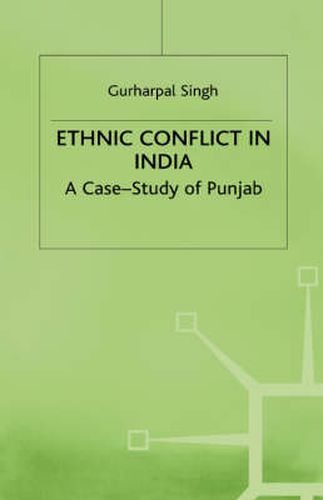Readings Newsletter
Become a Readings Member to make your shopping experience even easier.
Sign in or sign up for free!
You’re not far away from qualifying for FREE standard shipping within Australia
You’ve qualified for FREE standard shipping within Australia
The cart is loading…






This title is printed to order. This book may have been self-published. If so, we cannot guarantee the quality of the content. In the main most books will have gone through the editing process however some may not. We therefore suggest that you be aware of this before ordering this book. If in doubt check either the author or publisher’s details as we are unable to accept any returns unless they are faulty. Please contact us if you have any questions.
Is India unique in politically managing ethnic conflicts? This book evaluates critically the conventional wisdom which argues that it is.
By focusing on India’s nation and state-building in the peripheral regions since 1947 and contemporary developments, it suggests that India should be considered as a form of ethnic democracy. Within India’s ethnic democracy, hegemonic and violent control is exercised over minorities, especially religious communities constituting majorities in the federating units. A detailed case-study is provided of the management of the ‘Punjab proble’ - the growth and containment of Sikh ethno-nationalism and, after 1984, the suppression of the separatist movement for Khalistan, a Sikh state.
The long-term development of ethno-nationalist separatist movements, the book argues, is inextricably linked to the future character of Indian democracy. This is assessed in light of the challenge posed by the rise of Hindutva forces, the demise of Nehruvianism, and the internal political and economic
pressures towards regionalization.
$9.00 standard shipping within Australia
FREE standard shipping within Australia for orders over $100.00
Express & International shipping calculated at checkout
This title is printed to order. This book may have been self-published. If so, we cannot guarantee the quality of the content. In the main most books will have gone through the editing process however some may not. We therefore suggest that you be aware of this before ordering this book. If in doubt check either the author or publisher’s details as we are unable to accept any returns unless they are faulty. Please contact us if you have any questions.
Is India unique in politically managing ethnic conflicts? This book evaluates critically the conventional wisdom which argues that it is.
By focusing on India’s nation and state-building in the peripheral regions since 1947 and contemporary developments, it suggests that India should be considered as a form of ethnic democracy. Within India’s ethnic democracy, hegemonic and violent control is exercised over minorities, especially religious communities constituting majorities in the federating units. A detailed case-study is provided of the management of the ‘Punjab proble’ - the growth and containment of Sikh ethno-nationalism and, after 1984, the suppression of the separatist movement for Khalistan, a Sikh state.
The long-term development of ethno-nationalist separatist movements, the book argues, is inextricably linked to the future character of Indian democracy. This is assessed in light of the challenge posed by the rise of Hindutva forces, the demise of Nehruvianism, and the internal political and economic
pressures towards regionalization.